Rent strikes have spread across the country with the spread of the coronavirus. In the pandemic’s first months, 400 New York City families stopped paying rent in buildings with over 1,500 rental units. In May, rent strikes involving 200,000 tenants spread to Philadelphia and elsewhere. Washington, D.C., in September saw tenant unions spring up in strikes at the Tivoli Gardens Apartments and the Woodner, as well as Southern Towers in nearby Alexandria.
Rent strikes had a history as a resistance tactic before the pandemic hit. Cleveland tenants settled a rent strike in February, after 38 families forced concessions on the landlord of the 348-unit Vue Apartments in Beachwood. San Francisco had a famous rent strike that went on for three years at the Midtown Park Apartments, ending in 2017.
But with the pandemic, rent strikes have become a widespread response to brutal economic pressure. According to the Terner Center for Housing Innovation at the University of California, Berkeley, 16.5 million families who rent housing lost income when the crisis began. Its October report states, “Nearly 50 percent of households in California have lost employment income since March of 2020, and one in five households (20.7 percent) indicated that they have no or only slight confidence that they have the ability to pay their mortgage or rent next month.”
According to the National Multifamily Housing Council, 24.6 percent of apartment households were not paying rent as of December 6. But even before the pandemic, 16.8 percent had not paid their rent in a survey made a year earlier. A website set up by Bay Area tenant activists, Bay Area Rent Strike, notes that 78 percent of the people in the U.S. live paycheck to paycheck. The group urges people who can’t pay to act collectively — to “work together to prevent eviction and foreclosure.” It adds: “We must demand an immediate suspension of rent and mortgage payments for everyone. And if this demand is not met, we must refuse to pay our rents and our mortgages, together.”
Cancelling rents was the demand that spread across the country with the strikes. In April, Cea Weaver, organizer for New York’s Housing Justice for All, said cancelling rent “is the demand of the rent strike.” In Los Angeles, Larry Gross, director of the Coalition for Economic Survival, says the city is full of rent strikes pushing for rent and mortgage forgiveness. Voicing that demand, the LA Tenants Union grew from 400 to 2,000 members in 2020.
Yet, despite LA’s strong tenant protections against eviction, enacted at the beginning of the crisis with no end date, the housing battle continues. “People occupying the CalTrans housing were forcefully removed,” Gross charged in an email interview. “That was fashioned after the Oakland mothers’ effort.” In March, housing activists occupied homes purchased by CalTrans which the agency intended to demolish for a freeway, but then kept vacant for years. On November 26, Highway Patrol in riot gear took them out and arrested many.
Los Angeles activists were inspired by Moms 4 Housing, a collective of homeless and marginally housed mothers who occupied a vacant Oakland home in 2019 and forced the city to find financing for its purchase, igniting a wave of housing activism. Carroll Fife, a Moms 4 Housing member, was elected to the Oakland City Council in large part as a consequence. On December 5, she spoke to a rally organized by several tenants’ unions, just prior to a caravan to the buildings where rent strikes are taking place.


“People said cancelling rents was ridiculously radical and not popular,” Fife declared, as the daughter of another activist squirmed and danced beside her. “But District 3 is ground zero for displacement, and people here think otherwise. We think a different reality is possible. The current paradigm in this country is not only not working — it is killing us.”
The caravan then set out. First a bicycle hauling a huge speaker, emblazoned with the slogan “Cancel Rent Debt” left a Lake Merritt parking lot, heading into the densely populated downtown apartment district. Following it came other bicycles, with slogans taped to their frames. Skateboarders and roller skaters snaked among them. And finally came the cars, with placards fixed to their windows and doors.
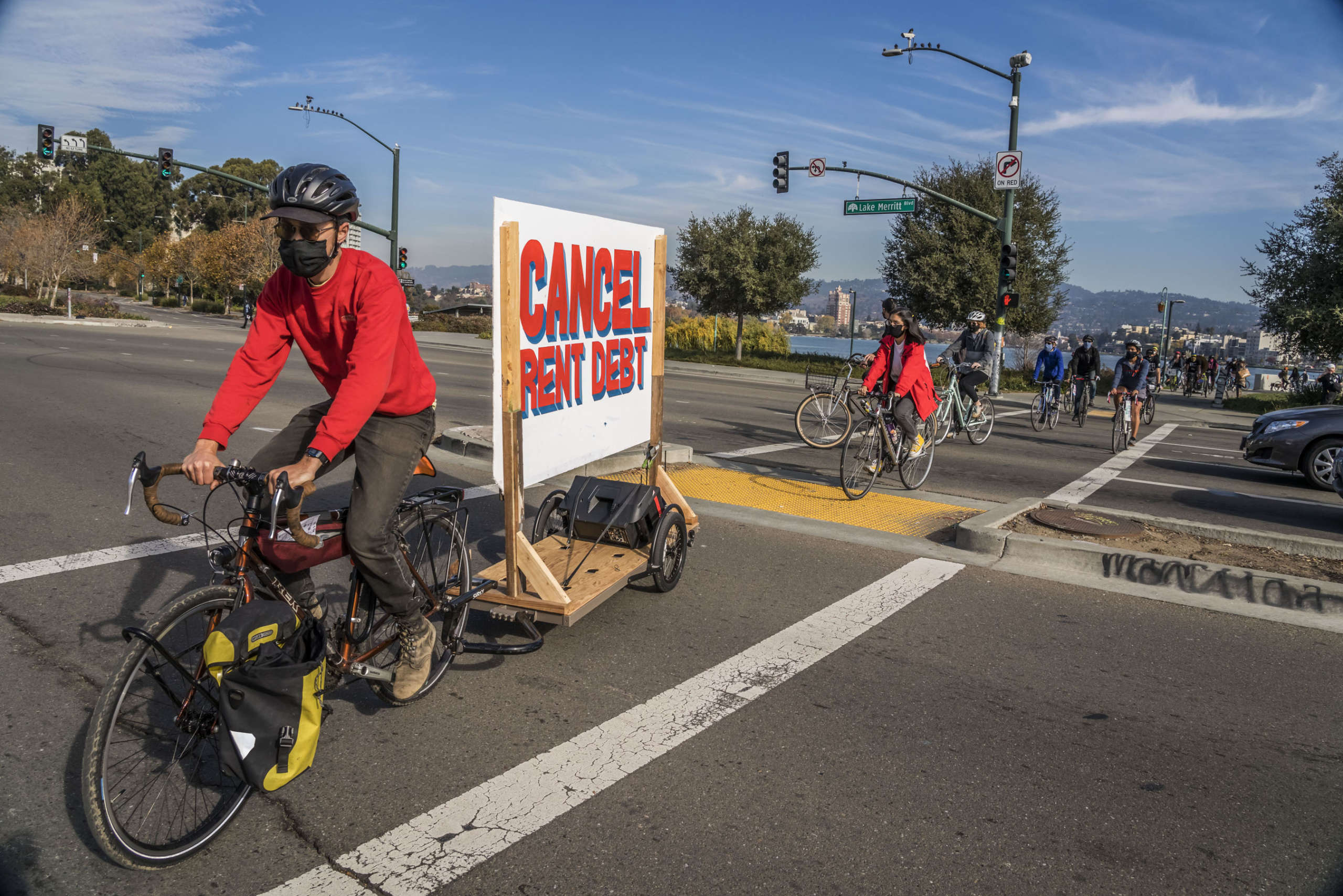


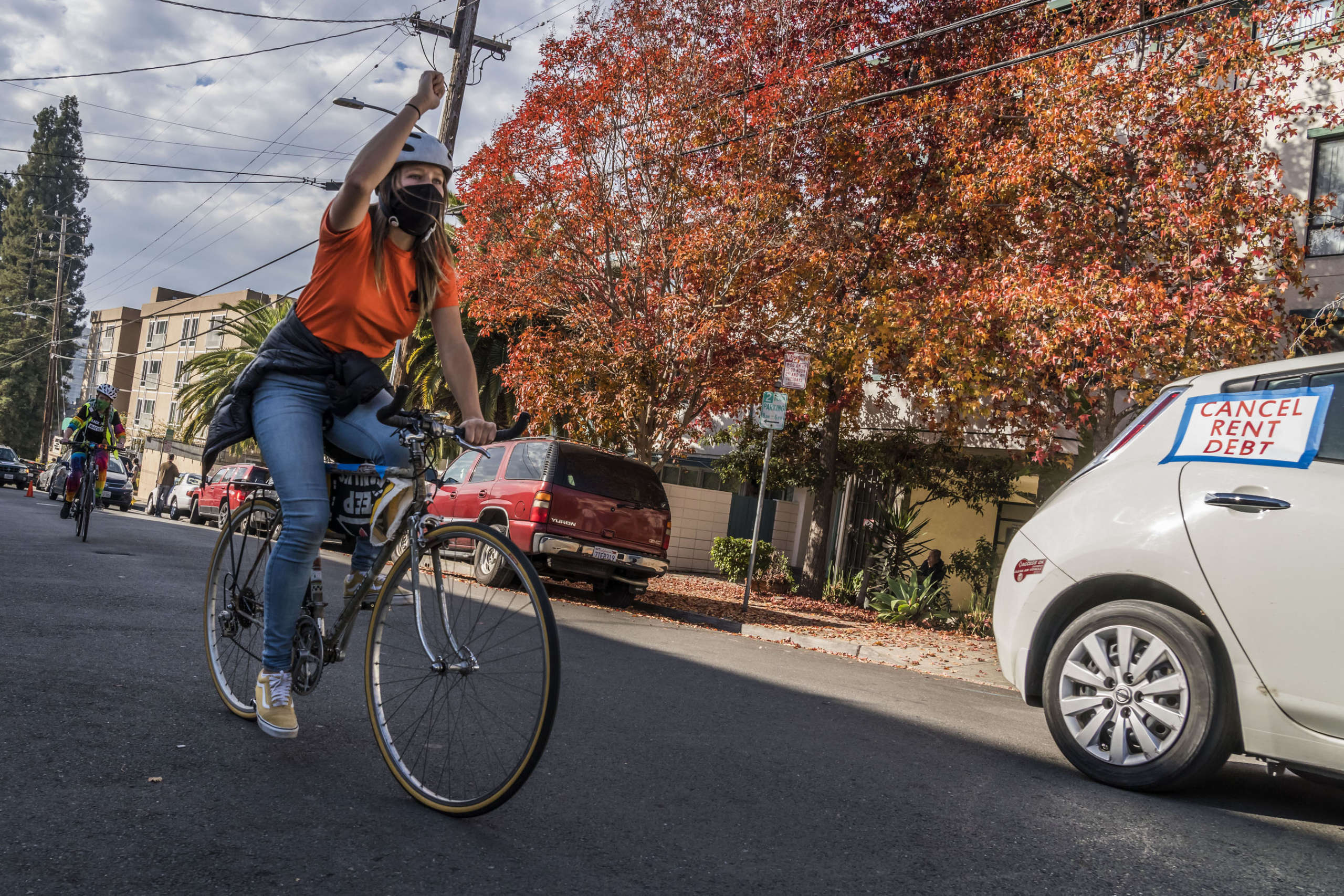
The caravan, organized by the JDW Tenants Union, Alice Tenant Union, the People’s Tenants Union, Lonay Tenant Council and Veritas Tenants Association, held impromptu rallies in front of several buildings where organized tenants have stopped paying rent.
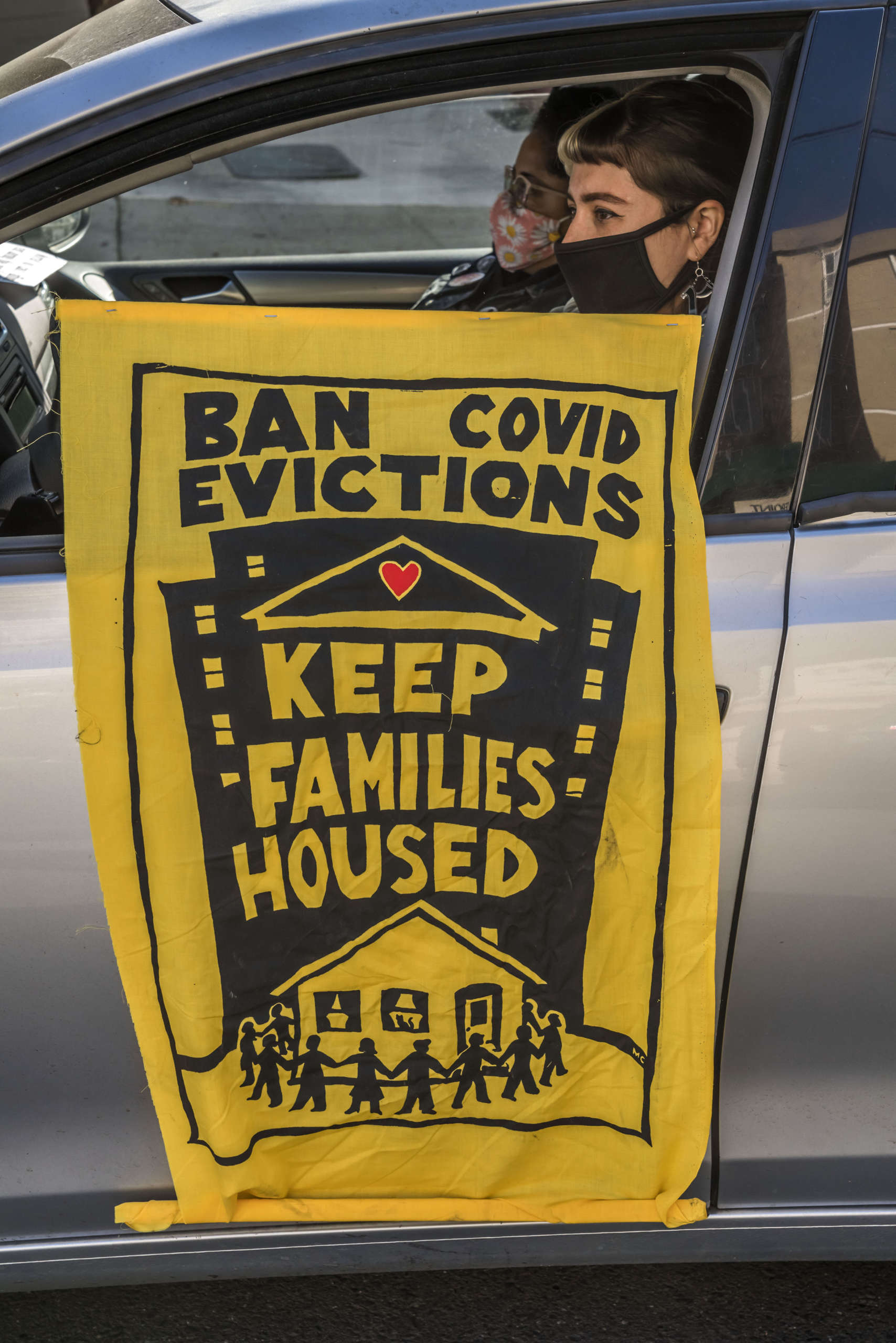
A statement was read from one group, the SMC Tenants Council, at a building owned by the Sullivan Management Company. “We have been forced to advocate for our rights and our housing against a corporate landlord that is backed by hedge funds and billionaires,” it charged. “Our corporate landlord has ample resources to forgive rent to its tenants for the duration of the COVID-19 crisis but chooses instead to squeeze its tenants, who have lost jobs and federal assistance.”
Councilwoman Fife is the director of the Alliance of Californians for Community Empowerment (ACCE), which helps organize and support rent strikes throughout the state. “The ‘shelter in place’ orders will end,” ACCE warns. “The crisis for low-income and working families will not. Even before the crisis, most of us were living paycheck to paycheck. With the loss of income, there is no way for most Californians to pay back rent or back mortgage payments that went unpaid during the crisis. Basic common sense dictates that because we won’t be getting back pay, we have no way to pay back housing payments.”
Cancelling the rent, ACCE says, is the only solution.
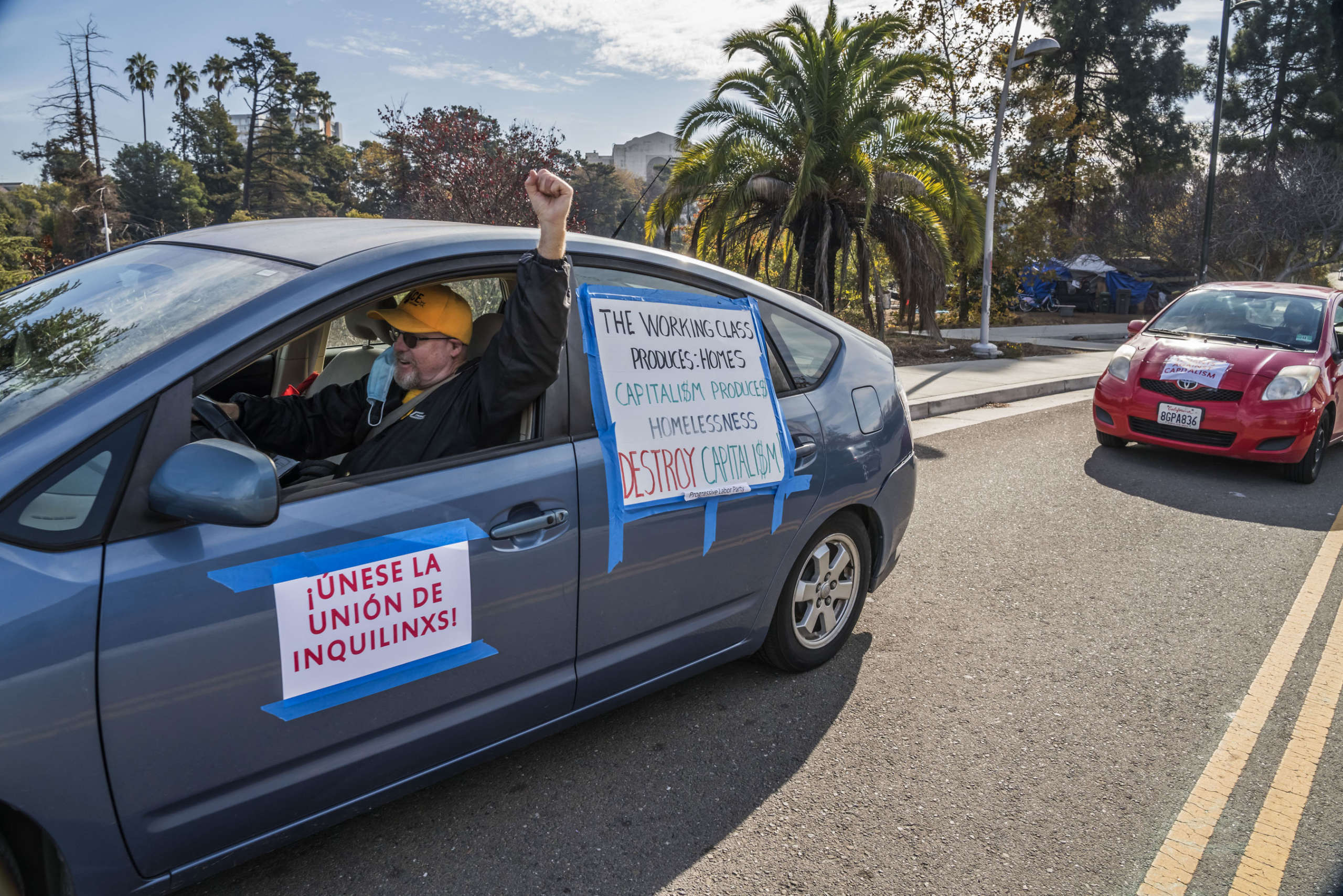
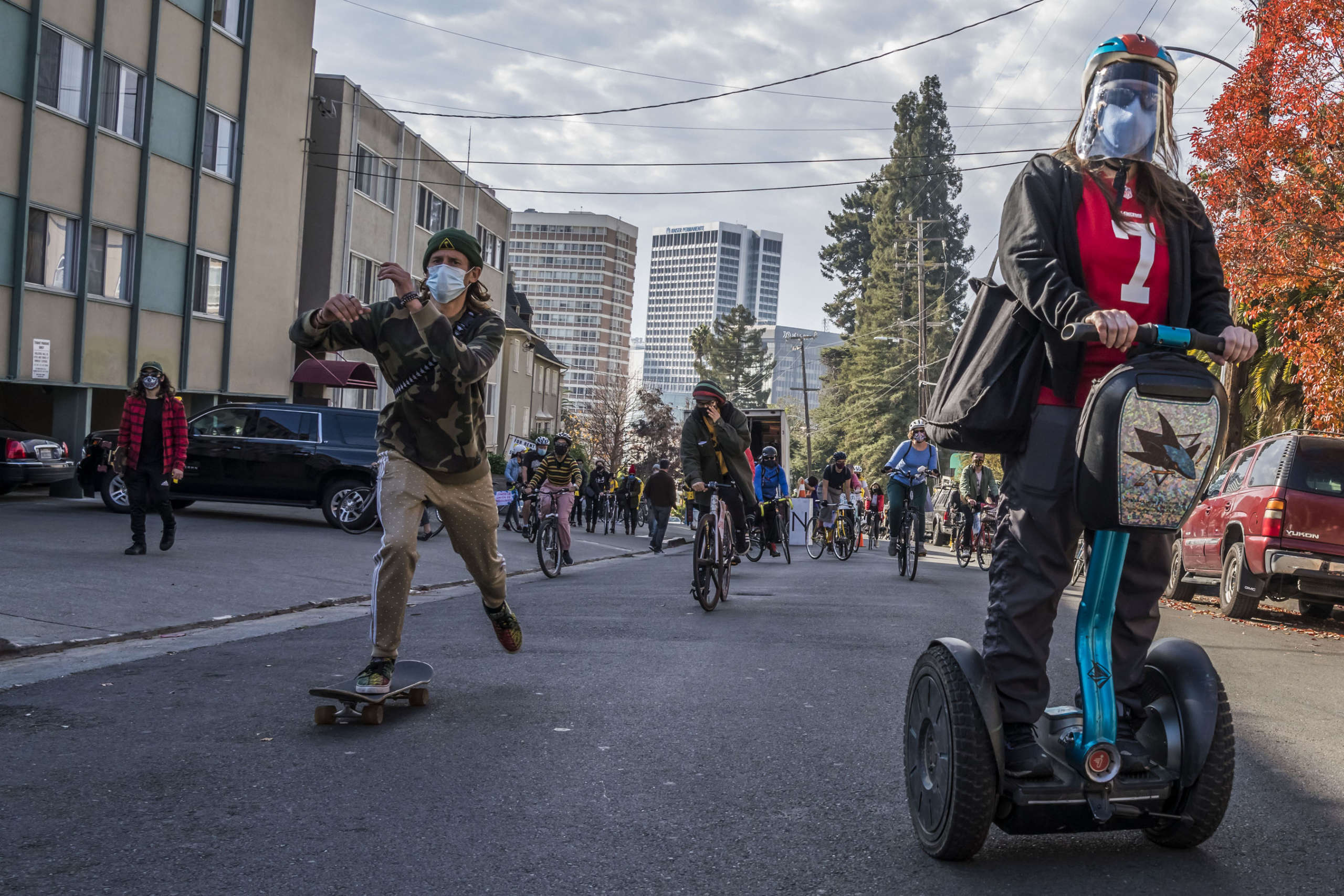
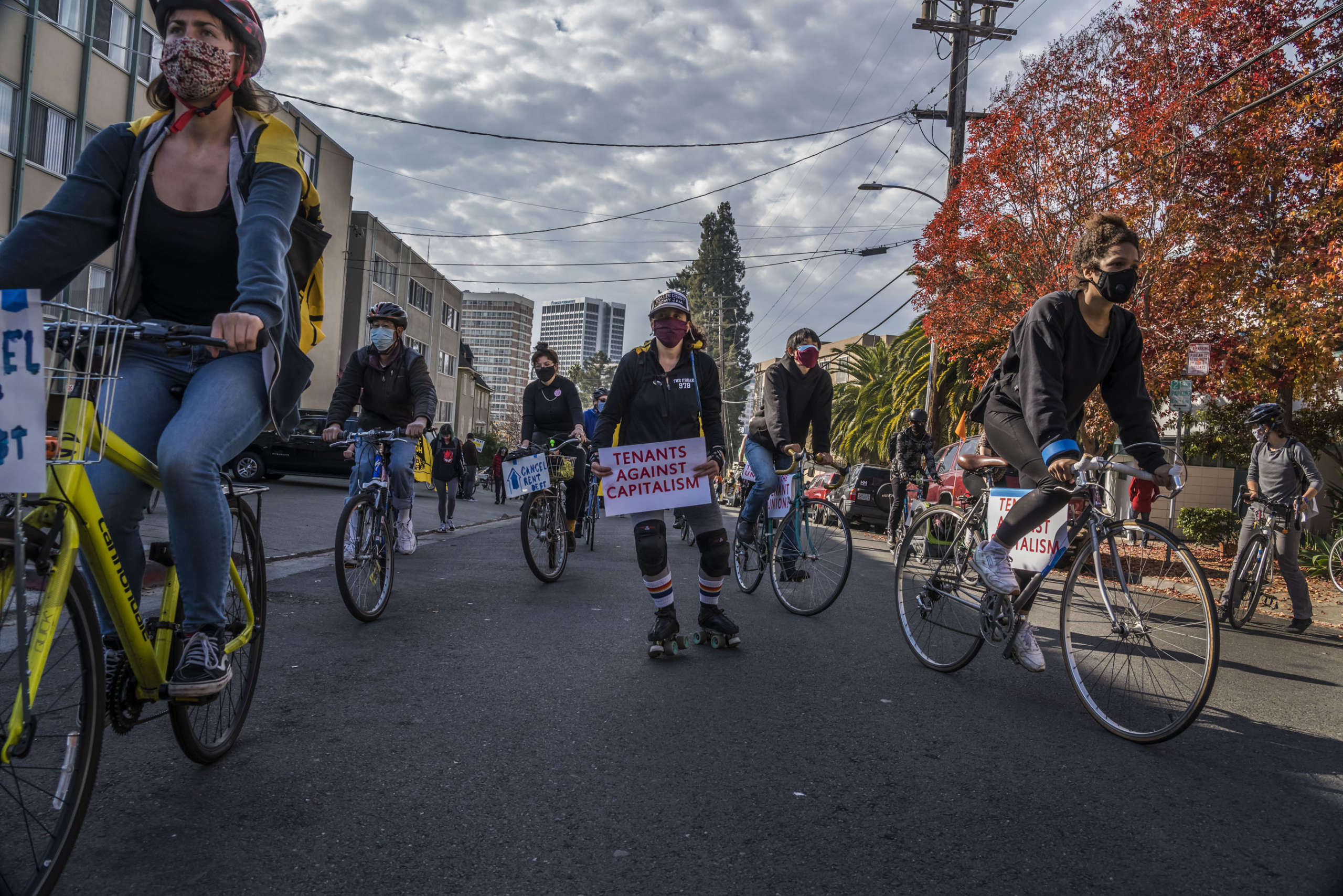
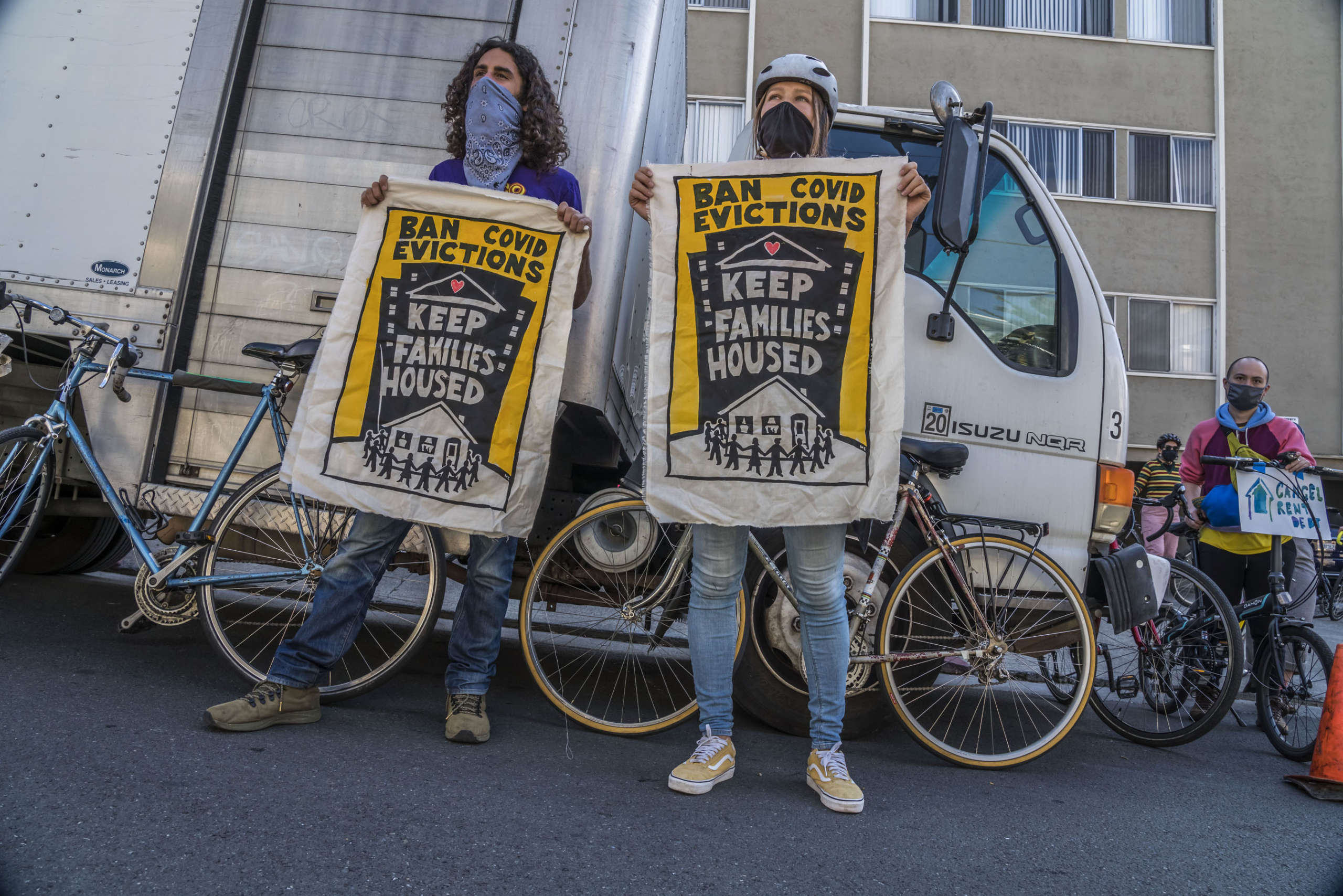
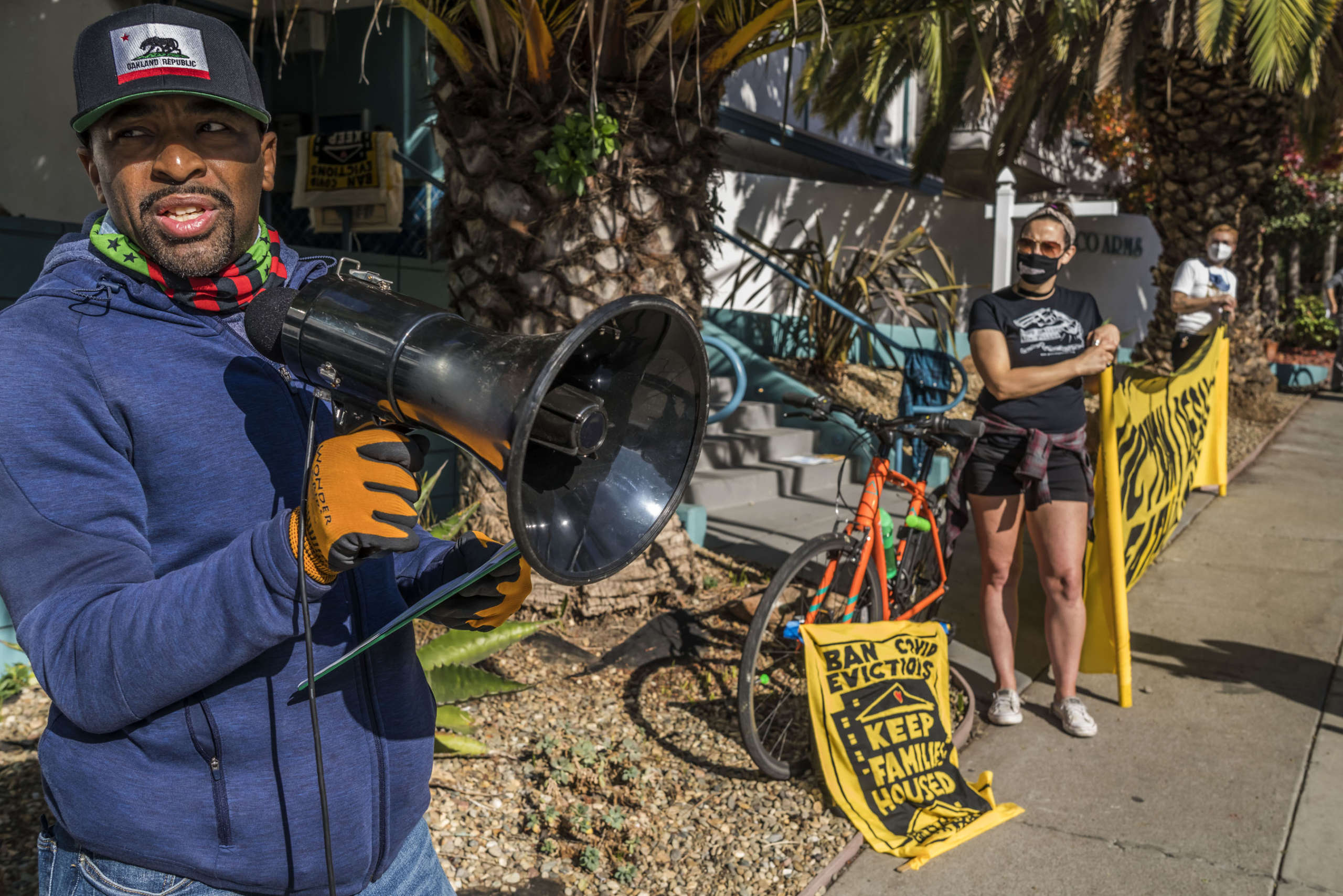
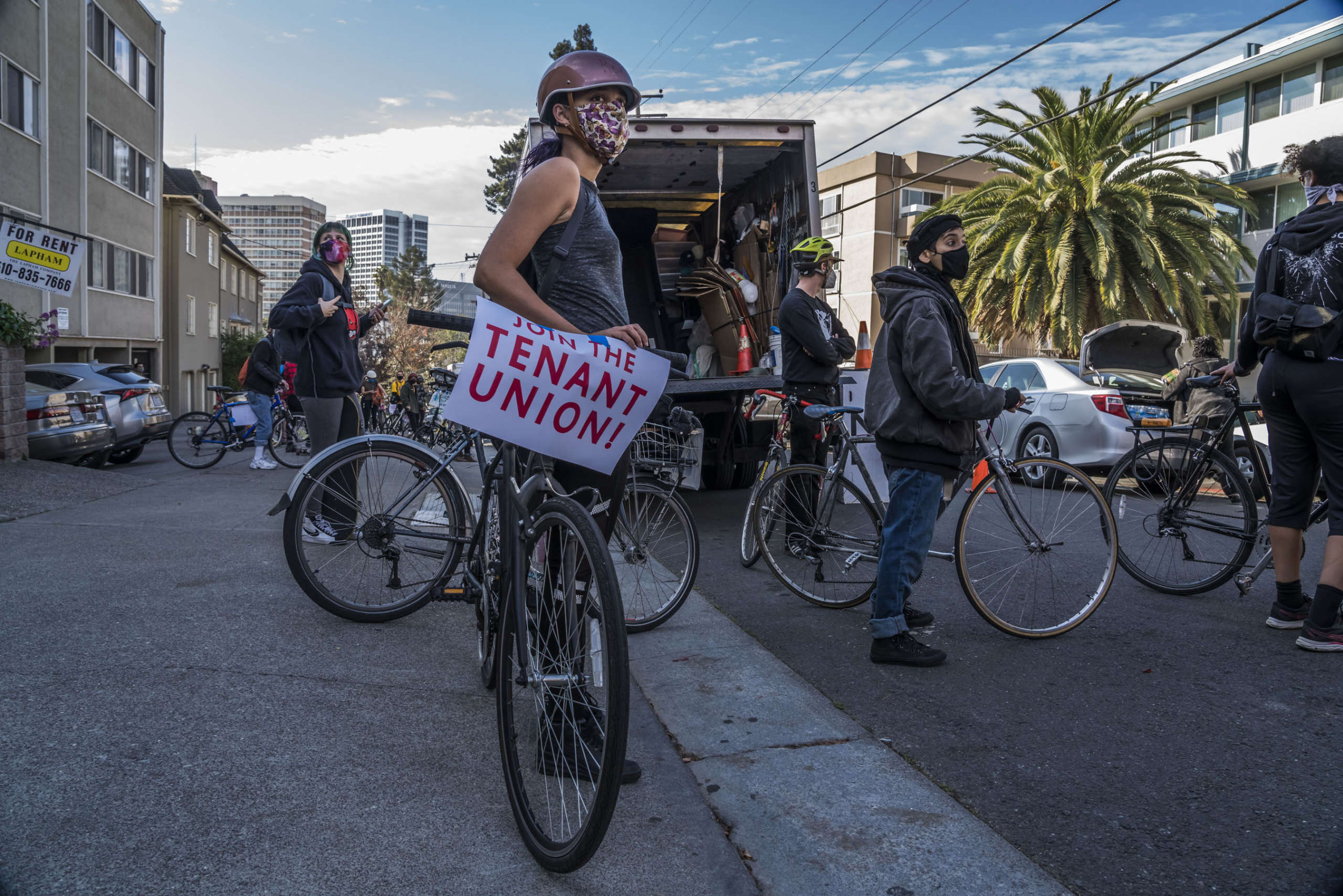
Join us in defending the truth before it’s too late
The future of independent journalism is uncertain, and the consequences of losing it are too grave to ignore. To ensure Truthout remains safe, strong, and free, we need to raise $44,000 in the next 6 days. Every dollar raised goes directly toward the costs of producing news you can trust.
Please give what you can — because by supporting us with a tax-deductible donation, you’re not just preserving a source of news, you’re helping to safeguard what’s left of our democracy.
